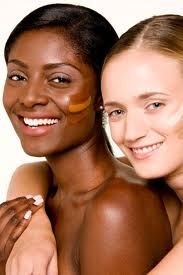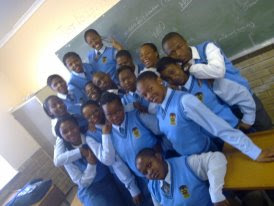This article is in reply to the White Apartheid Legacy- Rebuttal article written by No. You’re a
handbang http://www.news24.com/MyNews24/White-Apartheid-Legacy-a-Rebuttal-20130819.
His article was in reply to my Black
Apartheid Legacy: the untold stories of a rainbow nation http://www.news24.com/MyNews24/Black-Apartheid-Legacy-The-untold-stories-of-the-Rainbow-Nation-20130818.
To begin with, I am NOT suggesting by any means that
I am a victim of apartheid. Besides, how can I be one when according to you I
was ‘just born in 1992.’ Nelson Mandela was released from prison in 1990 with a
magic wand that erased each and every scar of apartheid. Well, in his words “For to
be free is not merely to cast off one's chains, but to live in a way that
respects and enhances the freedom of others.”
My article was not to enforce white guilt. It was
written to highlight that freedom is not just being able to walk freely in your
country without the worry of carrying a Dompas; freedom is not just being able
to vote or to seat next to a white person in a taxi.
Freedom is also psychological. Indeed, as black
people we have equal opportunities and at times even greater than white people. However,
we don’t reach for these opportunities, because we feel underserving of them,
because of our skin colour.
The point of Black Apartheid Legacy is not about
saying I am poor, because I was oppressed by a white man. It is says “I am poor
in 2013 as a black person, because I doubt myself. “ The article was meant for
black people to free themselves from mental inferiority. My last paragraph
says: “Being an international student made me realize that I am a prisoner of
my own thoughts, my mind oppresses me, my assumptions limit me, I am a black
consciousness freedom fighter trapped in Robbin Island-and my own mind is
Robbin Island. If Apartheid really ended in South Africa, I am its neglected
legacy.”
As blacks we have a self-fulfilling prophecy that
prevents our own social advancement, because we think we are inferior to
whites, we regard ourselves as second class citizens. This mentality is the
result of what we were continuously being told in the past (apartheid).
In my article I made an example of how Xhosa people
call each other as iziXhosana, a derogatory term derived from “our own tribe”
that means one is illiterate, uncivilized and stupid, because of their
tribe/skin colour. This is an ideology that we fought for during Apartheid. However,
today we are oppressed by a backlash that we are enforcing upon ourselves.
Joseph Arthur Comte de Gobineau, a French aristocrat
and philosopher wrote in his book, An
Essay on the Inequality of the Human Races that “Culture and civilization
are an exclusive creation of the superior race.” He argues that “superiority
and inferiority are not due to the environment but are innate.” In his book he
describes blacks as people who are “permanently inferior” and will “never
progress.”
The Aristotelian hypothesis says that “some human
beings (blacks) are by nature slaves and others (white) free.”
All of these theories and more were made to justify
racism towards blacks. These theories have been long grained in black people’s
mind even today.
I often hear blacks in Transkei say “Hayi kodwa
umlungu wasinceda kodwa. Wawuyaze laphi into yokuba siyoze silayite umbane.”
(Translation: “Thank God for white people. Who else could have thought of
inventing electricity?”
This ideology again can be supported by European and
American scholars who have said in the past that “Africans (blacks) are people
without a past, without any culture, and made no contribution to civilization.”
The discrimination of black people on account of
their skin colour inspired Steve Biko to encourage “Black Consciousness”
amongst blacks.
The discrimination of black people on account of
their skin colour gave rise to the Pan African Movement.
The discrimination of black people on account of
their skin colour saw the rise of Du Bois, Malcom X and Marcus Garvey.
Marcus Garvey’s mission was to make the “Negro to
cultivate self-respect, race pride, love of his dark skin, woolly hair, broad
nose and thick lips.”- Saxena (1993).
However, all these great men’s attempts have come to
no avail, because we still feel inferior and underserving. Thabo Mbeki says in
his I am an African speech, “My mind and my knowledge of myself is formed by
the victories that are the jewels in our African crown.”
Like I said I was raised by my grandparents who have
instilled their worldviews and ideologies upon me. I am a victim of apartheid
not because I was imprisoned or tortured. “I am its neglected legacy.”
When blacks gained independence from apartheid, all
the government cared about was a black man’s social advancement; hence BEE (not that BEE was formed by black people either). BUT
they failed to acknowledge the psychological aspect of apartheid that has been
ingrained on black people. Travelling has made me write that opinion piece.
However, how many people still live in isolated rural areas like Transkei?
“Whatever the circumstances they have lived through
and because of that experience, they are determined to define for themselves
who they are and who they should be.”- Thabo Mbeki
The Group Areas Act of 1950 was merely to separate
non-whites from areas that whites should leave in. There are still people
living in these homelands even today. They are still isolated from the rainbow
nation by geographical boundaries, their mind and lack of access to resources
i.e. the internet.
I do acknowledge that white people are not living
comfortably in South Africa, because many blacks still see them as non-
Africans. This is the result of their state of mind that prevents them from
seeing that colour does not equal nationality.
Our shared history does.
“I am formed of the migrants who left Europe to find
a new home on our native land. Whatever their own actions, they remain still,
part of me.” – Thabo Mbeki.
We should not blame each other for who we are or for
our social conditions. Today we have the power to change our current social
position through a “positive self-image.” Black people need to stop saying that
“poverty is part of my culture” or “I am black, I am supposed to be poor.” Or
even worse use apartheid as an escape goat.
My article simply said “Hey, what I
grew up being told is wrong. I am not inferior to a white person. I don’t need
a white brain to succeed in life. I need a positive self-image. I need to
create my own identity and world view.” Many in Transkei never get to realize
this.

























